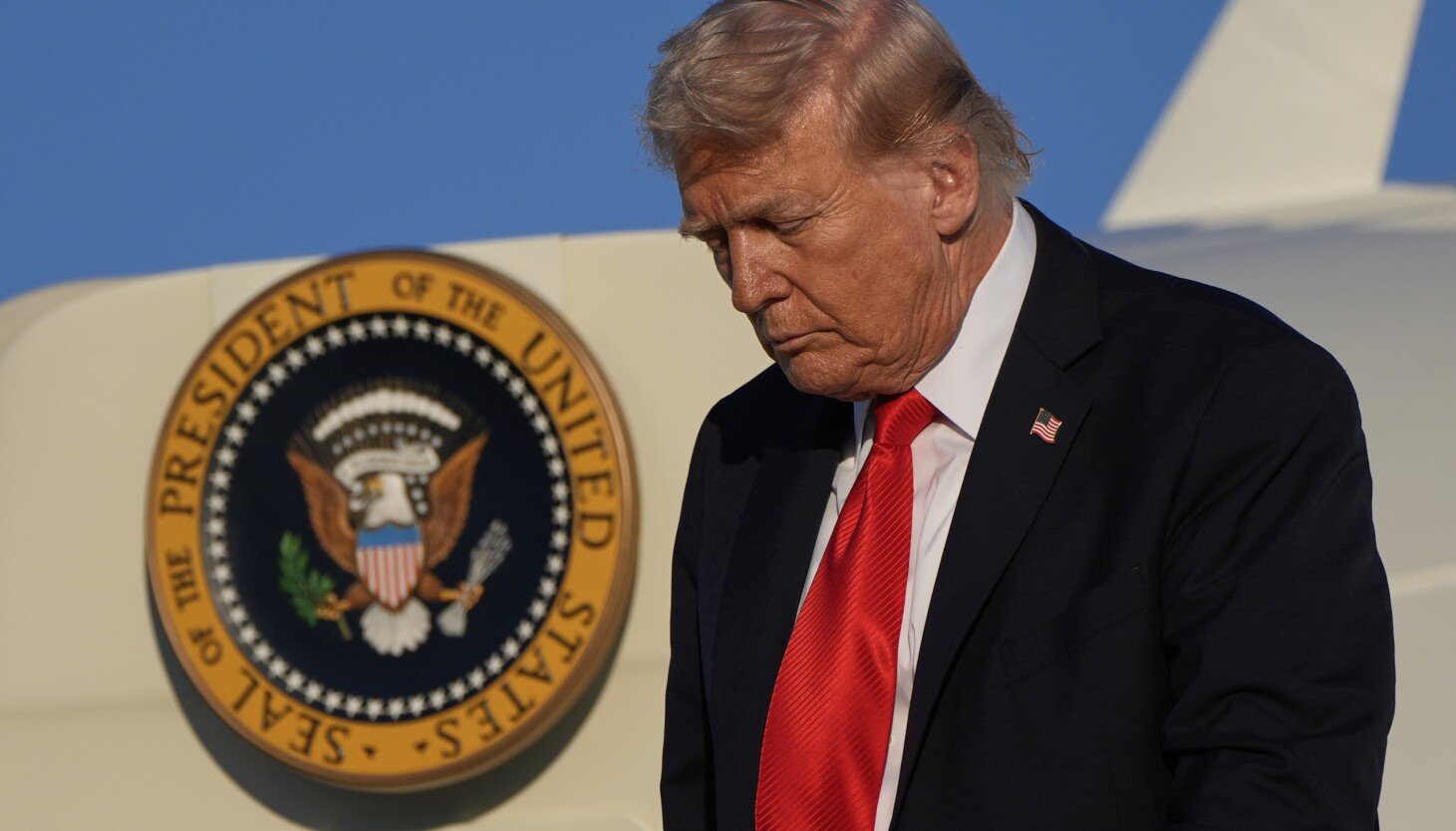President Donald Trump apparently has backed down from his promise to send the National Guard into Chicago — for now.
Mayor Brandon Johnson credited the vocal opposition of Chicago and Illinois Democrats against federal intervention for Trump’s announcement Friday that he’ll instead send the National Guard to Memphis, Tennessee — though he “would have preferred going to Chicago,” Trump said.
“Because of the unified opposition from community leaders and elected officials in Chicago and throughout the state, the Trump administration backed down from its threats of sending in the National Guard to Chicago,” Johnson said in a statement.
“We continue to call on the federal government to send additional resources to help us continue to drive down violent crime, but we reject any military occupation of our city. The way to reduce violence is by focusing on the strategies that work: effective policing, violence prevention, and investing in communities,” the mayor said.
Trump, whose administration is still flooding the Chicago area with immigration agents, said on Fox News Channel the Guard is being welcomed by Democratic Memphis Mayor Paul Young and GOP Tennessee Gov. Bill Lee.
But those officials were reportedly “blindsided” by the proposal in recent days, the Memphis Commercial Appeal reported.
Illinois Gov. JB Pritzker, who stood alongside Johnson and other top local and state officials last month urging Trump to keep troops away from Chicago, called it “disturbing that the [p]resident is hellbent on sending troops onto America’s streets.”
“Using those who serve in uniform as political props is insulting,” Pritzker wrote in a social media post. “None of this is normal.”
Trump said “we’re going to fix [Memphis] just like we did Washington,” where he has sent the National Guard and surged federal law enforcement, while suggesting Chicago is a “hostile” place with “professional agitators.”
U.S. Sen. Dick Durbin dismissed the president’s back-and-forth as “political theater” — and suggested Chicago might not be out of the woods yet.
“This president will change his target city on a daily basis depending on factors I can’t even imagine,” Durbin said.
Pritzker, Johnson and a broad coalition of political and business leaders have insisted Trump back off, with the governor accusing Trump of attempting to normalize military presence in cities to stifle voter turnout in the 2026 midterm elections.
But not all officials were against it. Southwest Side Ald. Ray Lopez (15th), one of the police union’s most outspoken allies, bemoaned the president’s decision to avoid Chicago and send the National Guard to Memphis instead.
Lopez called it a “loss for the city of Chicago” and a “lost opportunity” to provide a stepped-up police presence in the downtown area while freeing inundated Chicago police officers to finally respond to what he called “quality-of-life calls to 911 that often go unanswered.”
“I would absolutely have loved to have seen the National Guard’s presence for 30 or 60 days, leaving officers guarding that Mag Mile and putting them back in the districts,” Lopez said.
“We know that the Mag Mile is under attack. We know that Michigan Avenue is under assault almost every single day. We just saw it twice in a week’s time — whether it’s Rolex or Louis Vuitton. So, we know we need uniformed presence [there]. But at the same time, our neighborhoods need help, too. They need their 911 calls answered.”
Since sending the National Guard to Los Angeles and Washington, D.C., Trump has openly mused about sending troops to some of the nation’s most Democratic cities, claiming they are needed to crack down on crime.
But crime has fallen in Chicago over the past few years as part of a nationwide trend.
Trump first deployed troops to Los Angeles in early June over Democratic Gov. Gavin Newsom’s objections by putting the California National Guard under federal jurisdiction, known as Title 10, to protect federal property from protests over immigration raids.
Besides 4,000 Guard members, Trump later sent 700 active duty Marines, and California sued over the intervention. The Guard went on to help protect officers during immigration arrests.
Meanwhile, the unique status of the District of Columbia National Guard — Trump is its commander in chief — means he has been able to use it for everything from armed patrols to trash cleanup without any legal issues. Because it is on state and not federal orders, legal restrictions on law enforcement don’t come into effect.
Ald. Brian Hopkins (2nd), chair of the City Council’s Committee on Public Safety, called the shift to Memphis a “temporary reprieve” but only temporary.
“I do believe that, eventually, he’ll make good on his threat to send the Guard here, perhaps later this year,” Hopkins said.
“We don’t need it. They don’t bring anything positive to the table. And the risk of armed confrontation with protesters” is real and ever-present, Hopkins said.
Contributing: Kade Heather, Associated Press

